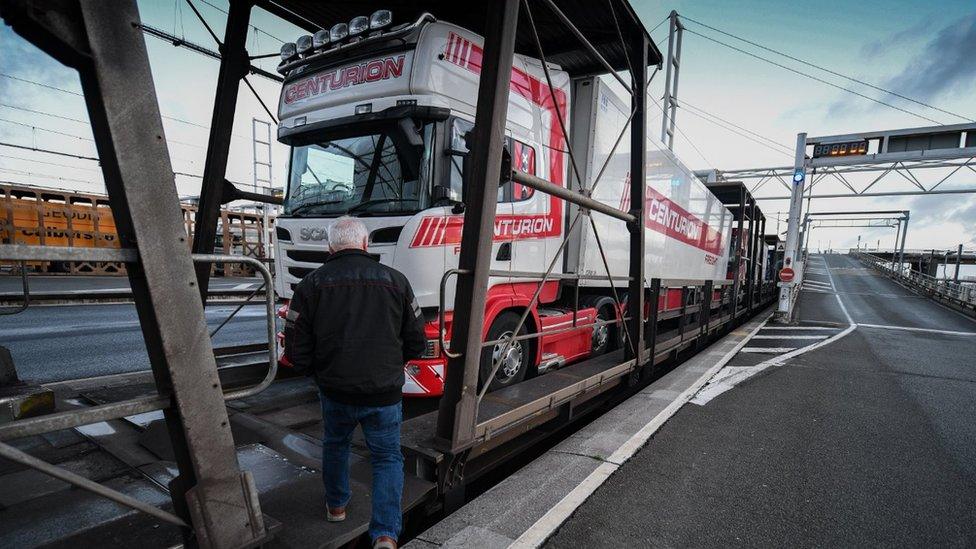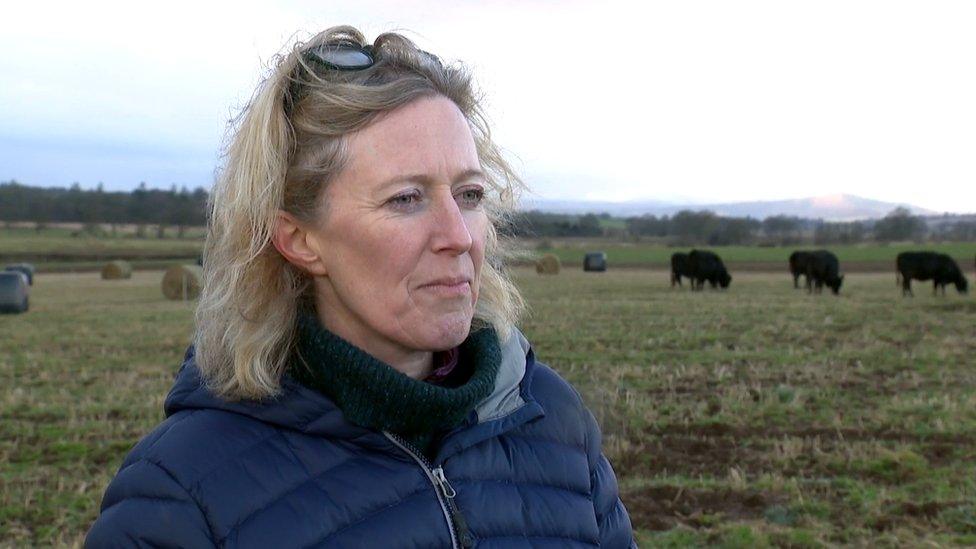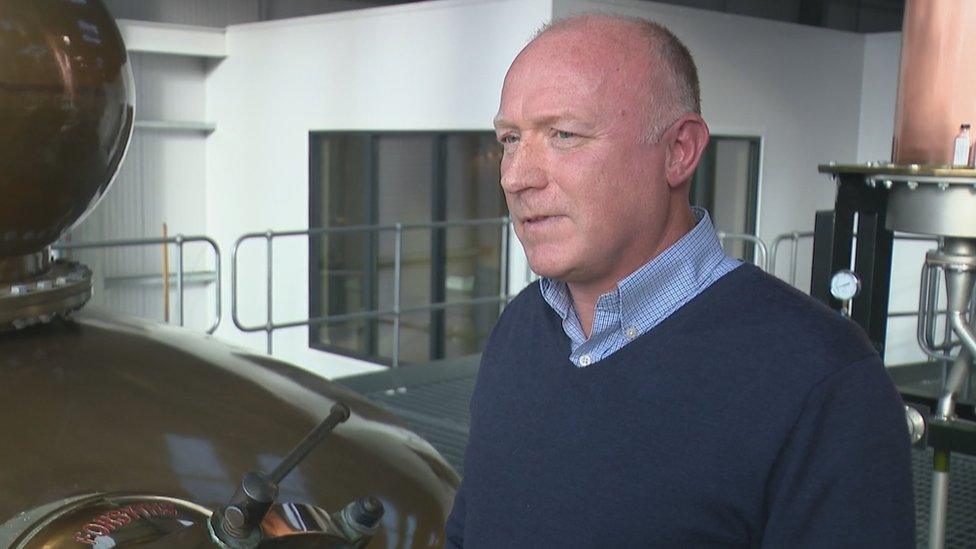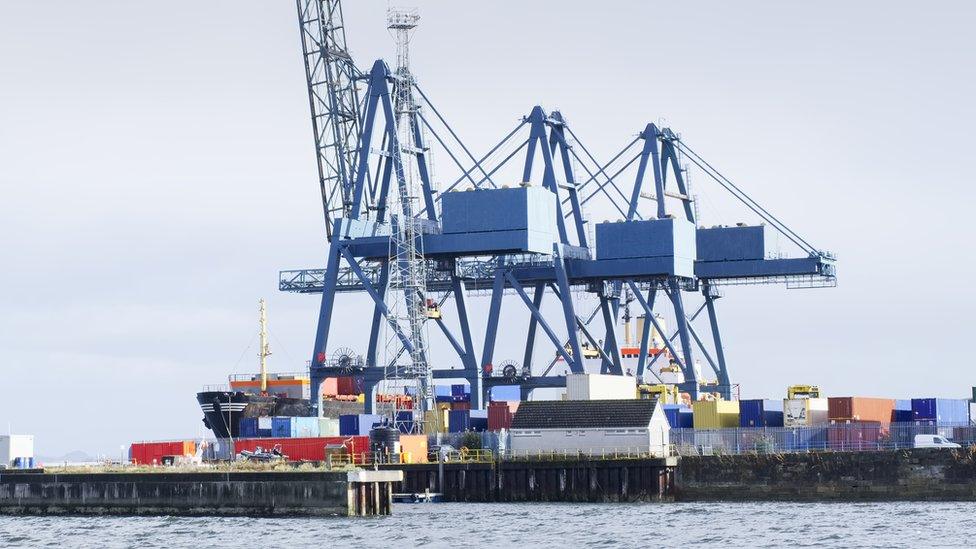Scottish exports increased by 2.9% in 2018
- Published

The value of exports from Scotland grew to £85bn in 2018- an increase of 2.9%, according to new estimates, external.
The growth was helped by growing demand for Scottish food and drink produce where exports were up 7.1%.
The Scottish government highlighted that trade with the EU was growing faster than trade with other markets.
But the UK government said Scotland's "most important trading partner" was the rest of UK, accounting for more than three times the trade with the EU.
What are the biggest export markets for Scotland?
The biggest market Scotland exported to was the rest of the UK, worth over £51bn. This increased by £1.2bn - a rise of 2.5% on 2017's figure.
Trade with European Union countries was worth more than £16bn - an increase of £695m on the previous year's statistics. Trade with the EU was growing at 4.5% - a faster rate than for any other market for Scottish exports.

Within the EU's single market, exports to France - worth £3bn - overtook the Netherlands (2.8bn) as Scotland's biggest export market. Germany was the third largest market, worth £2.5bn.
Scotland's biggest single foreign market was the USA, accounting for £5.5bn worth of exports.
However, the figures - which are based on 2018 - cover a period before tariffs were enforced on whisky and other Scottish goods by the Trump administration amid a trade dispute between the EU and the US.

What do Scottish food and drink producers think?
Food and drink is the biggest export Scotland sends abroad. Exports by this sector grew 7.1%, which is worth £420m in trade.
BBC Scotland has spoken to two producers about their businesses.

Sascha Grierson runs a business selling organic meat products
Sascha Grierson is co-owner of Hugh Grierson Organic - a family farm and butchery business in rural Perthshire.
At the farm, near Tibbermore, pedigree Aberdeen Angus cattle are reared, as well as home-bred lamb, rare breed pigs and free range chickens.
Sascha is concerned at the prospect of a trade deal with America. It could involve changing and lowering food standards - for example, by allowing the introduction of beef from cattle which have been given hormones (this is currently banned in the UK and EU).
She says that the UK has some of the highest food production standards in the world and farmers here are proud to adhere to that.
Everything on her farm is free range and organic. It means her produce is more expensive than other produce.
The farmer thinks there's a danger that it becomes an "unlevel playing field" and Scottish farmers are required to compete against producers who don't follow those standard then it will be difficult to explain to customers why the products made in Scotland are more expensive.
It would be "very hard to compete commercially" and would could lead to consumers feeling they couldn't "trust" beef.

Douglas Crawford is the managing director of Aberargie Distillery in Perthshire
Douglas Crawford is the managing director of Aberargie Distillery in Perthshire. It's new - they've been producing for just over two years.
It's owned by the Morrison family - who used to run Bowmore distillery - and was a multi-million pound investment.
Exports are "vital" for the business - he points out that the only way it can make a profit is to export worldwide.
Scotch is a "global product" and he says as a company they export to 16 markets and want this to grow into "untapped markets" after their investment in a new distillery.

'Growing value of the EU'
Finance Secretary Derek Mackay welcomed the figures, and focused on the growth in exports to the EU.
He said the rate of growth "demonstrates the growing value of the EU to Scotland's exporters".

Shipping containers at Greenock
He added: "On Friday, Scotland will be taken out of the European Union against our wishes - removing us from the world's biggest trading bloc.
"That threatens to cause significant damage to the Scottish economy, and poses particular problems for exporters, making it harder for us to reach our ambitious target of international exports being 25% of GDP by 2029."
He added that the Scottish government would "continue to work to support exporting businesses, develop international links and encourage inclusive growth".
UK trade 'most important'
The UK government's Scottish Secretary Alister Jack focused instead on the value of exports to other parts of the UK.
He said: "Scotland's most important trading partner is the rest of UK - worth more than three times that of trade with all 27 EU countries combined.
"This demonstrates, once again, that our Union is absolutely crucial to supporting jobs, businesses and prosperity across Scotland."
He said this was one reason UK government had refused Nicola Sturgeon's demand for another independence referendum.
He claimed that independence "would put a hard border between Scotland and the rest of the UK".
Mr Jack added: "We will instead make 2020 a year of opportunity and growth for all parts of our country."
- Published30 January 2019
